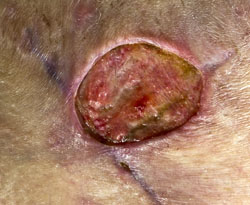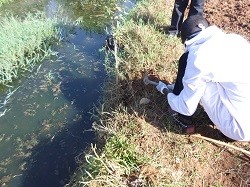New defences against hospital infections
There is a significant difference in levels of MRSA in different EU countries. However, most countries have reported an increase in MRSA contaminations during the past decade. Worryingly, livestock have become a new source of MRSA and up to 39 % of pigs in affected countries may carry the resistant strain, ST398. The EU-funded PILGRIM project focused on the MRSA ST398 strain as this is the main cause of infection in community and healthcare settings. Moreover, it is animal-adapted and transmissible from animals to humans (zoonotic), so the study can use animal models as well as investigate relevant virulence factors, colonisation and host range. Project scientists aimed to gain a deeper understanding of factors affecting the delicate interactions between the host and the resistant bacteria from the population down to the molecular level. New ways investigated to reduce MRSA contamination included antimicrobial agents to reduce levels of microbes on surfaces in farms and hospitals. Their efficacy was determined in 'farm chambers' and a mathematical model was developed to simulate bacterial transmission between pigs and humans. A technology testing platform (TTP) developed has been made commercially available and been taken up by four companies. The new platform promises to accelerate the release of products to control resistant bacteria in healthcare settings. PILGRIM also provided new instruments for rapid strain identification using the polymerase chain reaction (PCR) to copy the appropriate pieces of DNA. Combined with new dip-stick technology, this could result in rapid, low-cost bedside testing. Project partners have published guidelines and recommendations for healthcare workers and members of the public particularly at risk of exposure to MRSA ST398. Awareness of resistant bacteria has been promoted to two particular groups – the general public and policymakers. PILGRIM results have provided a firm platform on which to develop a coordinated approach throughout Europe to tackle the ongoing threat of multidrug-resistant (MDR) bacteria like MRSA.







